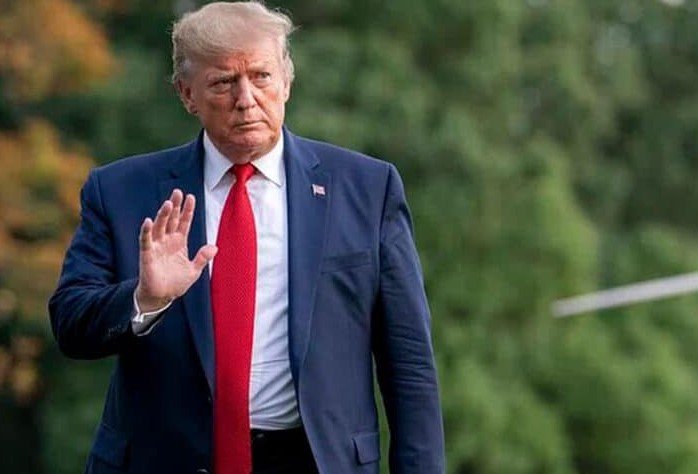Israel has signaled its readiness to agree to a 60-day ceasefire in Gaza, according to former U.S. President Donald Trump, raising hopes—but not guarantees—of a pause in one of the most brutal modern conflicts. Whether Hamas will accept the terms, however, remains a looming question with no answer yet in sight.
Trump posted the update on Truth Social, his go-to platform, adding a layer of urgency: “Hamas better take this deal, because it will not get better — IT WILL ONLY GET WORSE.”
Trump Throws the Ball in Hamas’ Court
Donald Trump, never one to mince words, told his supporters and the world that Israel has “agreed to the necessary conditions” for a Gaza ceasefire lasting 60 days. He didn’t spell out those conditions. Not even a hint.
But what he did say was loud and clear: Hamas now holds the key.
In his post, Trump emphasized that the final proposal would be delivered by Qatar and Egypt, two countries that have played mediator roles throughout the conflict. “We will work with all parties to end the war,” he wrote.
One line stood out more than others. “It will not get better — IT WILL ONLY GET WORSE.” Trump’s tone left no room for interpretation. This isn’t just a peace offering. It’s a final warning.

Netanyahu in the Spotlight Ahead of U.S. Meeting
Israeli Prime Minister Benjamin Netanyahu is expected to meet Trump next week, in what the former president promised would be a “very firm” exchange.
“He wants to [end the war]. I can tell you he wants to,” Trump said during a recent interview. “I think we’ll have a deal next week.”
But does Netanyahu want peace—or simply a pause?
On the Israeli side, Strategic Affairs Minister Ron Dermer and Israel’s Ambassador to the UN Danny Danon are working the diplomatic circuits. Dermer landed in Washington this week to meet U.S. special envoy Steve Witkoff, Secretary of State Marco Rubio, and Vice President JD Vance.
Danon, meanwhile, voiced frustration. “Hamas is playing hardball,” he told the BBC. “We are putting pressure on Hamas, and if they will not come to the table, the only option we will have… is to apply more military pressure.”
And military pressure is exactly what this war has had in excess.
What’s on the Table: Ceasefire, Hostages, or Both?
At least 50 Israeli hostages remain in Gaza. According to Israeli officials, 20 of them are believed to still be alive. That grim statistic has driven both urgency and political tension.
Danon was blunt. “The war will end when the hostages are back home,” he said.
But here’s where things get murky. Is the ceasefire offer conditional on hostage release? Is it unconditional and meant to build trust before deeper talks?
Neither Trump nor Israeli officials have clarified the finer print. That leaves analysts guessing—and families of hostages holding their breath.
Meanwhile, Hamas hasn’t publicly responded. Silence, in this case, is more than ominous. It’s strategic.
Growing Global Pressure and Ceasefire Fatigue
Calls for a ceasefire have echoed for months. International outrage over Israel’s bombing campaign in Gaza—especially the toll on civilians—has intensified. At the same time, rocket fire from Hamas and allied groups has kept Israeli cities on edge.
This has all happened under the backdrop of a Middle East spiraling out of alignment.
-
Yemen’s Houthi rebels have fired missiles toward Israel.
-
Hezbollah has struck northern Israeli towns.
-
Iran continues to fund and arm its proxies.
Pressure is mounting not just from international leaders, but from exhausted civilians. In Gaza, hospitals are overwhelmed. Food is scarce. In Israel, communities near the southern border feel abandoned and exposed.
A 60-day pause wouldn’t solve everything. But it might save lives. It might offer breathing room. And it might build just enough momentum to move toward something more durable.
Timeline of Talks and Key Players
The following table shows recent developments leading up to the potential ceasefire:
| Date | Event | Key Figures Involved |
|---|---|---|
| June 28 | Trump hints at potential ceasefire on Truth Social | Donald Trump |
| July 1 | Israeli Strategic Affairs Minister visits Washington | Ron Dermer, Steve Witkoff, Marco Rubio |
| July 1 | Trump announces Israel’s acceptance of ceasefire conditions | Donald Trump, Netanyahu |
| Next Week | Netanyahu to meet Trump in person | Benjamin Netanyahu, Donald Trump |
The pace has quickened. The words are sharper. But the outcome remains as uncertain as ever.
Hamas’ Silence Could Break the Deal
Let’s be real. Without Hamas at the table, the deal is a one-sided letter with no address.
Some analysts believe Hamas will reject the offer. Others think they’ll use this as leverage—perhaps to push for more aid, more prisoner releases, or international legitimacy.
Trump’s post makes it sound like the ball is firmly in Hamas’ court. But geopolitics doesn’t play on one court alone.
And let’s not forget—this isn’t a peacetime negotiation. It’s being conducted while bombs still fall and families still grieve.
